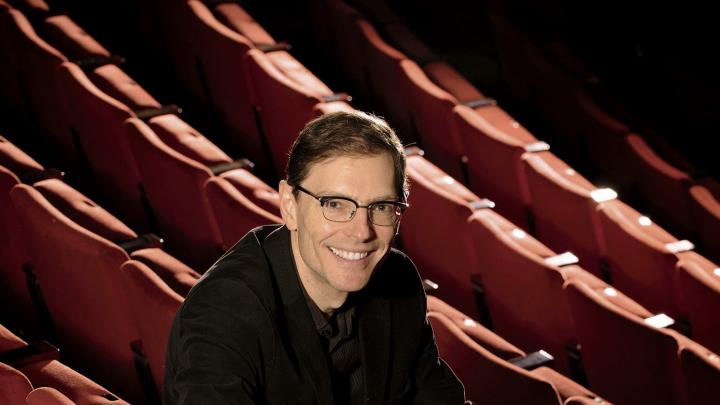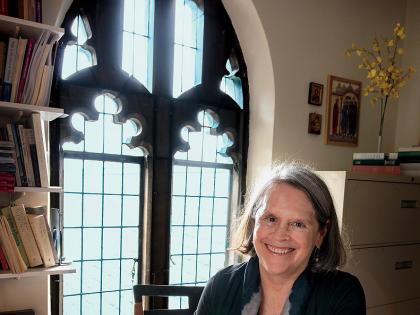“I’ve always been an impatient person,” says Martin Puchner, Wien professor of drama and of English and comparative literature. His impatience has served him well. A whirlwind of energy, the 43-year-old Puchner has already written three books—on theater, modernist literature, and philosophy—and edited many more, including the six-volume, 6,000-page third edition of the Norton Anthology of World Literature (2012). That “dizzying, impossible” project seemed an “insane endeavor, yet I found the scope of it thrilling,” he says; with seven co-editors and 10 consultants spread across the globe, e-mails poured in at any hour, day or night. Born in Nuremberg, Germany, he attended an alternative, Waldorf school and acted, directed, and composed music for many theatrical productions in high school and college. A restless, passionate traveler, Puchner did undergraduate work at Konstanz in Germany, Bologna in Italy, and the University of California at Santa Barbara and Irvine. He never actually received a bachelor’s degree, but earned a Harvard Ph.D. in comparative literature in 1998. While teaching at Columbia from 1998 until 2010, he evolved into a scholar of theater. He’s been at Harvard since then; as chair of the Committee on Dramatics, he’s helping to shape a new concentration (if not department) in theater. Puchner plays piano, violin, and viola for enjoyment, and lives with his longtime companion, professor of English Amanda Claybaugh, while globetrotting to research his next book, on the relation of literary works to geography. “Literature is invading the world, transforming the world,” he says, “naming places, and changing people’s relationship to where they live.”
Harvard Portrait: Martin Puchner

You might also like
Sam Altman’s Vision for the Future
OpenAI CEO on progress, safety, and policy
The Picture of Freedom
A Boston Athenaeum exhibit explores an abolitionist with Harvard ties.
Jeff Lichtman Appointed Dean of Science
Neuroscientist to lead Harvard Faculty of Arts and Sciences division
More to explore
How is Artificial Intelligence Being Taught at Harvard?
A new Harvard course on artificial intelligence teaches students how to use the tool responsibly.
Civil War American Writer and Abolitionist John Greenleaf Whittier
Homes of the poet and abolitionist, whose verses were said to have inspired Abraham Lincoln.







